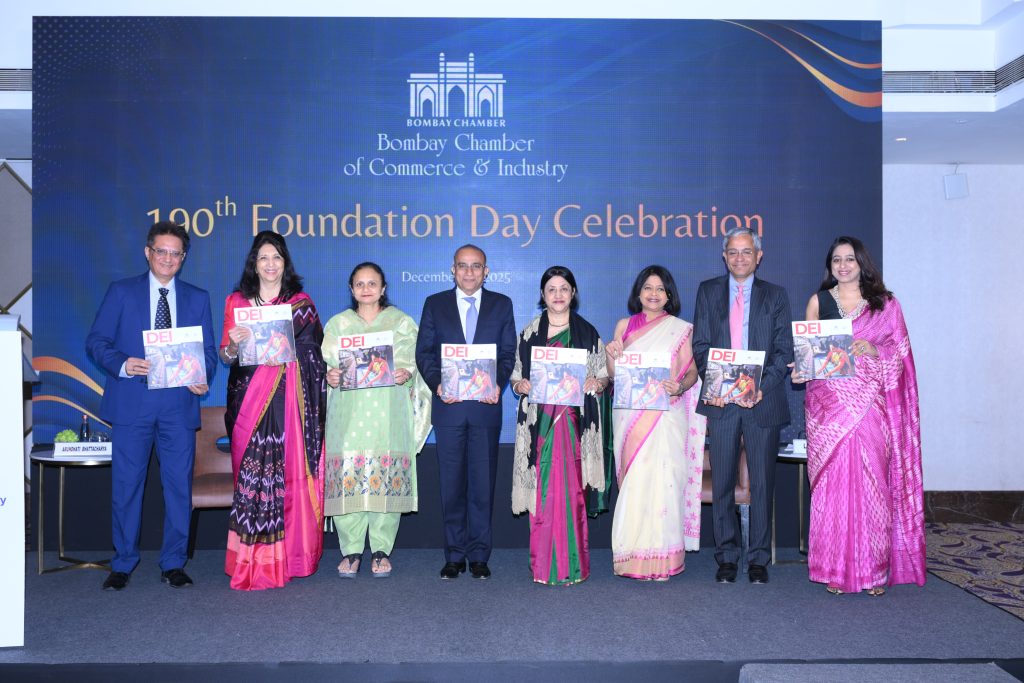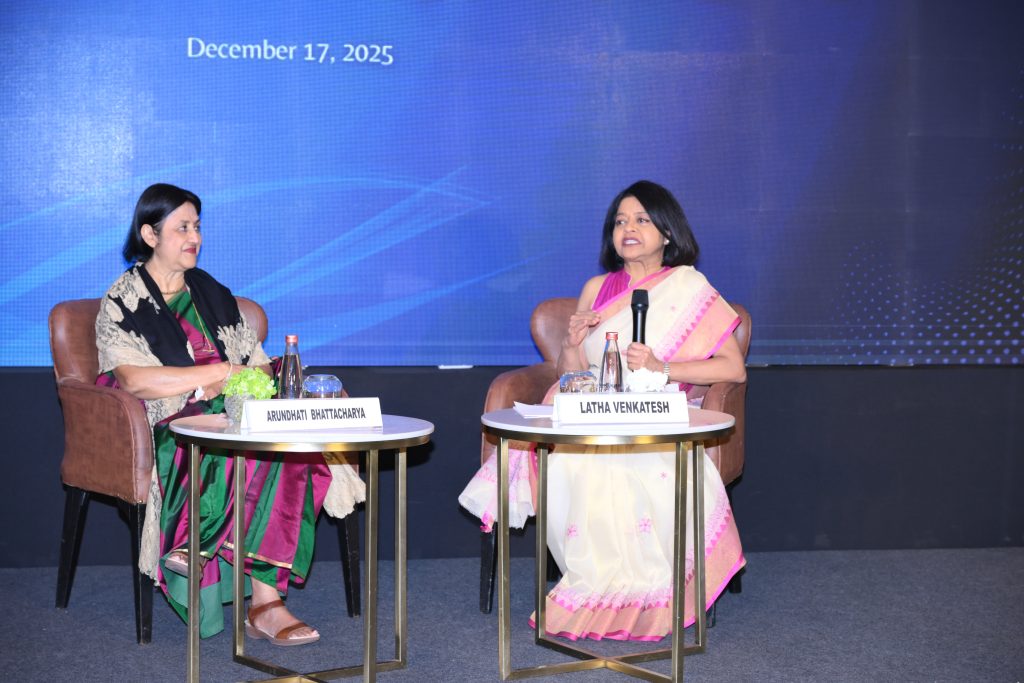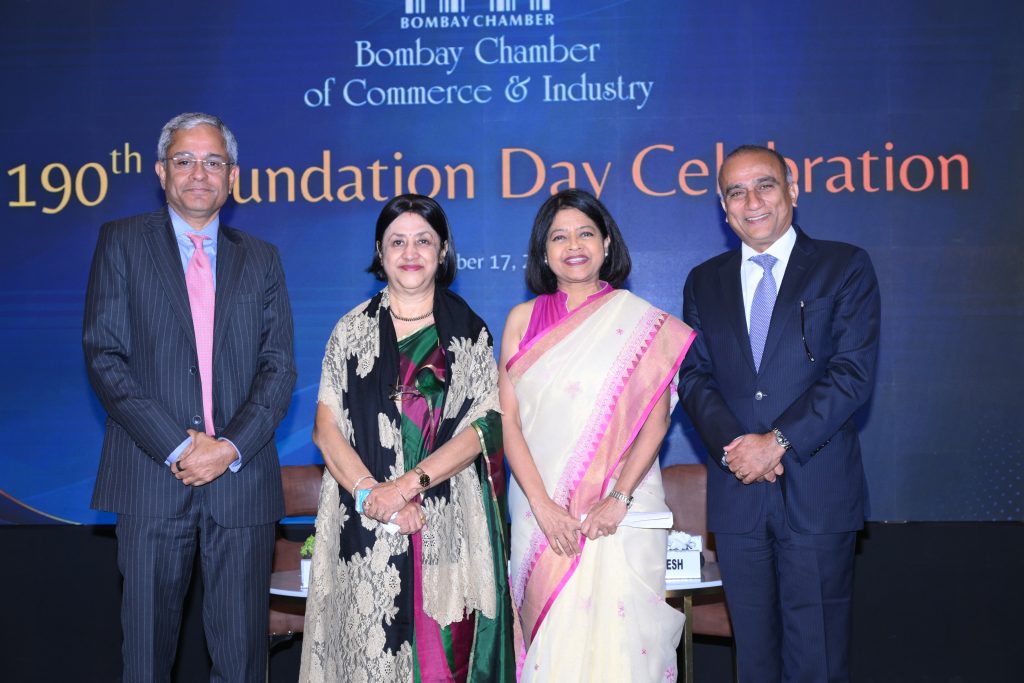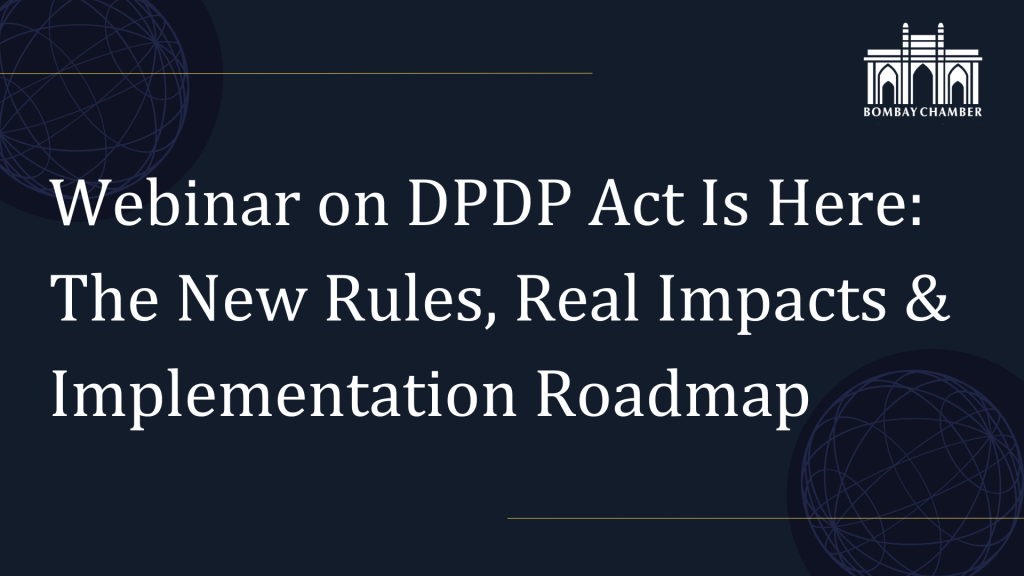Termination of an HIV-positive employee without compliance with safeguards under the HIV Act 2017 is unlawful – Delhi HC
Judgement attached
Top Stories
Termination of an HIV-positive employee without compliance with safeguards under the HIV Act 2017 is unlawful – Delhi HC
Judgement attached
Mere designation as a ‘Manager’ would not bring a person out of the purview of a ‘ Workman’ – Supreme Cour
Judgement attached.
Mumbai: Leverage artificial intelligence and technology as enablers, rather than fear them, was central to the message delivered by Arundhati Bhattacharya, President and Chief Executive Officer of Salesforce South Asia and former Chairperson of the State Bank of India, at the Bombay Chamber of Commerce and Industry’s 190th Foundation Day on December 17, 2025, in Mumbai.
“AI will change the way we work. It is a change here to stay, not to be resisted. If you resist, it will hit you like a tsunami. Resisting it will disempower you. Leaning in will make you far more powerful than otherwise. Ride AI like a surfer,” Bhattacharya said, addressing an audience comprising business leaders, policymakers, diplomats, and members of the wider corporate community.
Welcoming the audience, Rajiv Anand, President of the Chamber and MD & CEO of IndusInd Bank, reflected on the Chamber’s journey since 1836 and its enduring role in shaping India’s economic and commercial landscape. Anand emphasised that the Foundation Day was not only a commemoration of the Chamber’s past but also a reaffirmation of its commitment to progress and transformation.
He noted that the Chamber’s membership today reflects the breadth of India’s enterprise ecosystem, ranging from some of the country’s largest corporates to a dynamic small and medium enterprise sector that now accounts for two-thirds of its base. “This diversity,” he said, “has been central to the Chamber’s ability to adapt and evolve over nearly two centuries.”
Anand also elaborated on how the Chamber reinforced its role as a trusted bridge between government and industry through an active committee structure, thought leadership initiatives, and effective dispute resolution. Guided by the theme Shaping the Future: Innovation, Inclusion, Impact, its engagements covered priority areas including AI and responsible innovation, arbitration, labour reforms, DEI, MSME development, capital markets, sustainability, agriculture, and infrastructure. The Chamber also strengthened its international footprint through overseas delegations, including India’s first business delegation to Cyprus, while continuing to develop forward-looking knowledge initiatives such as the CSR Year Book and the upcoming CEO’s AI Playbook.
“Together, these initiatives highlight the Chamber’s commitment to progressive business practices, enterprise development and reinforcing Mumbai’s position as a hub of economic leadership, supported by the continued partnership of sponsors and collaborators,” said Anand.

The Foundation Day also saw the unveiling of a book capturing DEI journeys authored by the winners of the third edition of the Bombay Chamber DEI Forum & Awards, held in June. Building on the momentum of the Awards, the initiative seeks to advance DEI conversations by presenting these journeys as practical and inspirational case studies for industry. The book titled DEI Dynamics in India Inc 2025 was unveiled in the presence of Arundhati Bhattacharya, Rajiv Anand, Latha Venkatesh, Executive Editor, CNBC TV18; Sudhanshu Vats, Senior Vice President, Bombay Chamber and Managing Director, Pidilite Industries Ltd.; Meenakshi Priyam, Chair, DE&I Committee, Bombay Chamber and Senior Vice President & Head – Human Resources (Automotive Division), Mahindra & Mahindra Ltd.; Pinky Mehta, immediate Past President, Bombay Chamber and CFO, Aditya Birla Capital; Dr Indu Shahani, Founding President & Chancellor, Atlas Skilltech University; and Sandeep Khosla, Director General, Bombay Chamber, reaffirming the Chamber’s commitment to diversity, equity, and inclusion as a cornerstone of responsible and future-ready business.

This was followed by a highly illuminating fireside chat that seamlessly blended personal experience with visionary thinking. Bhattacharya, a pioneering leader who has transformed banking and now leads Salesforce South Asia, shared a compelling perspective on technological transformation, with a particular focus on artificial intelligence and its implications for India’s economic landscape. Moderated by Latha Venkatesh, the conversation explored the intersections of technology, banking, and societal progress, anchored in a clear message, “Technological change is not something to fear—it is something to engage with thoughtfully and strategically.”
Addressing concerns around job loss, Bhattacharya reframed the debate and noted, “This is not a question of jobs going away, but of jobs changing.” While acknowledging that transition periods are always painful,” she emphasised the importance of preparedness, adding “What will differentiate people in the future is multidisciplinary capability, experience, and human judgement.” AI, she observed, enhances productivity by enabling faster, more informed decision-making. “Today, AI can point out discrepancies instantly,” she said, citing examples such as loan processing timelines shrinking from two days to thirty minutes. For MSMEs, she noted, “AI can pull data from multiple sources, not just historical financial statements, to enable better and faster access to credit.” In this sense, she stressed that AI will not take away opportunities; it will lead to a burgeoning of opportunities.
Reflecting on the banking sector, Bhattacharya remarked that liquidity is not leaving the system—it is flowing differently because behaviour has changed. This, she argued, requires banks to adapt, with a far deeper understanding of capital markets than ever before.

On the question of public sector banks, Bhattacharya observed that PSBs are delivering with one hand tied behind their back. She underscored that there is no lack of merit or talent, but highlighted the challenges of operating under multiple regulators and diffused priorities. “Privatisation is not the answer,” she said, adding, “What we need is clarity on what we want to achieve, the milestones we want to reach, and the removal of anything that stops institutions from getting there.”
The discussion concluded with a forward-looking call to action – India has the hunger to build, she noted, but we need the right push. Capital, capability, and mindset will be critical, and in an era defined by rapid technological change, she concluded, every organisation must become a learning organisation.
In his vote of thanks, Sudhanshu Vats, reflected on the key themes of the discussion and India’s evolving opportunity landscape. Acknowledging Bhattacharya’s session, he noted how digital adoption and artificial intelligence can help level the playing field, particularly for MSMEs. He also observed that technology is reshaping economic narratives, offering pathways that extend beyond traditional global comparisons.
(Write to us at editorial@bombaychamber.com)
The ICC constituted at the aggrieved woman’s workplace can exercise jurisdiction over an employee of a different workplace – Supreme Court
Judgement attached
India and the Republic of Cyprus share a long-standing relationship rooted in mutual trust, shared democratic values, and close cooperation across political, economic, and multilateral platforms. Over the past six decades, bilateral ties have expanded steadily, with growing engagement in trade, investment, defence, innovation, maritime cooperation, and people-to-people exchanges.
This document provides a comprehensive overview of India–Cyprus bilateral relations, highlighting key diplomatic milestones, high-level exchanges, institutional mechanisms, trade and investment trends, and opportunities for deeper economic and business collaboration. It also reflects the strengthening role of chambers of commerce and business councils in advancing partnerships between the two countries, including the growing involvement of Indian industry in Cyprus as a gateway to Europe.
Public Holidays in 2026 for Maharashtra under Negotiable Instruments Act
Notification attached
Central Govt notifies Industrial Relations Code (Removal of Difficulties) Order, 2025 for continuation of Tribunals, Courts constituted under the Industrial Disputes Act 1947.
Copy of Notification attached

Mumbai: The Bombay Chamber of Commerce and Industry, through its Legal & IPR Committee, convened a high‑level webinar on the Digital Personal Data Protection (DPDP) Act and the newly notified rules. The programme brought together leading legal experts and industry representatives to explore the legislation’s wide‑ranging impact and to share practical insights on how businesses can adapt to an evolving regulatory environment.
Held on December 05, 2025, the session clarified the compliance requirements organisations must meet within the 18‑month transition period. Sandeep Khosla, Director General of the Bombay Chamber, delivered the welcome address and acknowledged the efforts of Attreyi Mukherjee, Co‑Chair of the Legal & IPR Committee and Vice‑President & Head of Legal, Mahindra & Mahindra (EV Business), for her role in actively shaping and planning the discussions.
Speakers Supratim Chakraborty, Partner at Khaitan & Co, and Sumantra Bose, Counsel at Khaitan & Co, outlined the scope of the Act and explained how it reshapes organisational accountability. They emphasised that the law introduces binding standards for consent, data minimisation, breach response, retention controls and governance. The discussion highlighted that these obligations are not routine adjustments but fundamental changes to how enterprises handle personal data.
Participants were reminded that the compliance window is short and that delaying action could expose organisations to operational disruption, legal consequences and reputational damage. The speakers examined practical steps for implementation, including revising contracts, updating internal processes and strengthening technical safeguards. They also addressed the role of consent managers, the handling of children’s data, and the responsibilities of significant data fiduciaries.
The session explored the challenges of breach reporting, particularly the requirement to notify multiple regulators and affected individuals. Attention was also given to data retention and deletion, with guidance on navigating the new framework. The speakers noted that organisations must prepare for audit‑ready governance and be able to demonstrate compliance at short notice.
Cross‑border data transfers were another area of focus, with discussion on how the rules alter existing practices and what safeguards are now expected. The webinar also touched on mergers and acquisitions, stressing that data protection considerations will become central to due diligence and transaction planning.
The panel discussion and Q&A session, moderated by Attreyi Mukherjee, Co‑Chair of the Legal & IPR Committee, Bombay Chamber and Vice‑President & Head of Legal, Mahindra & Mahindra (EV Business), highlighted the need for companies to treat compliance as an immediate priority, not something to be delayed. The speakers stressed that the Act requires organisations to act now, both to meet legal requirements and to maintain the trust of customers and stakeholders.
The webinar helped cut through the complexity of the legislation and gave attendees clear, practical insights. By explaining the law’s requirements and the risks of non‑compliance, it underscored the need for proactive preparation during the transition period.
(Write to us at editorial@bombaychamber.com)
Notification
Govt of NCT New Delhi publishes draft Rules under OSH Code 2020 for public comments.
Notification Link.
Notification
Govt of NCT Delhi publishes draft Rules under IR Code 2020 for public comments
Notification Link.


It is a long established fact that a reader will be distracted by the readable content of a page when lookin


